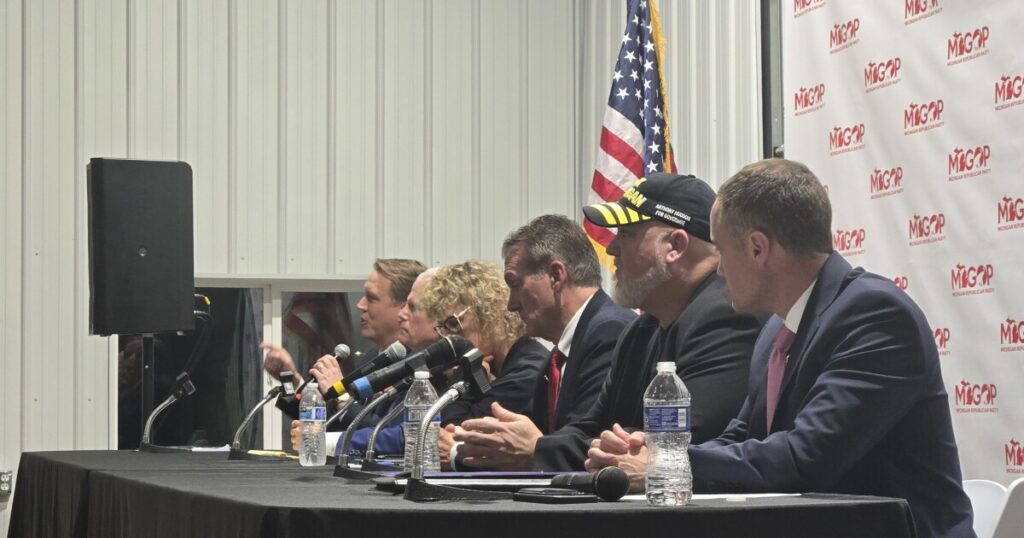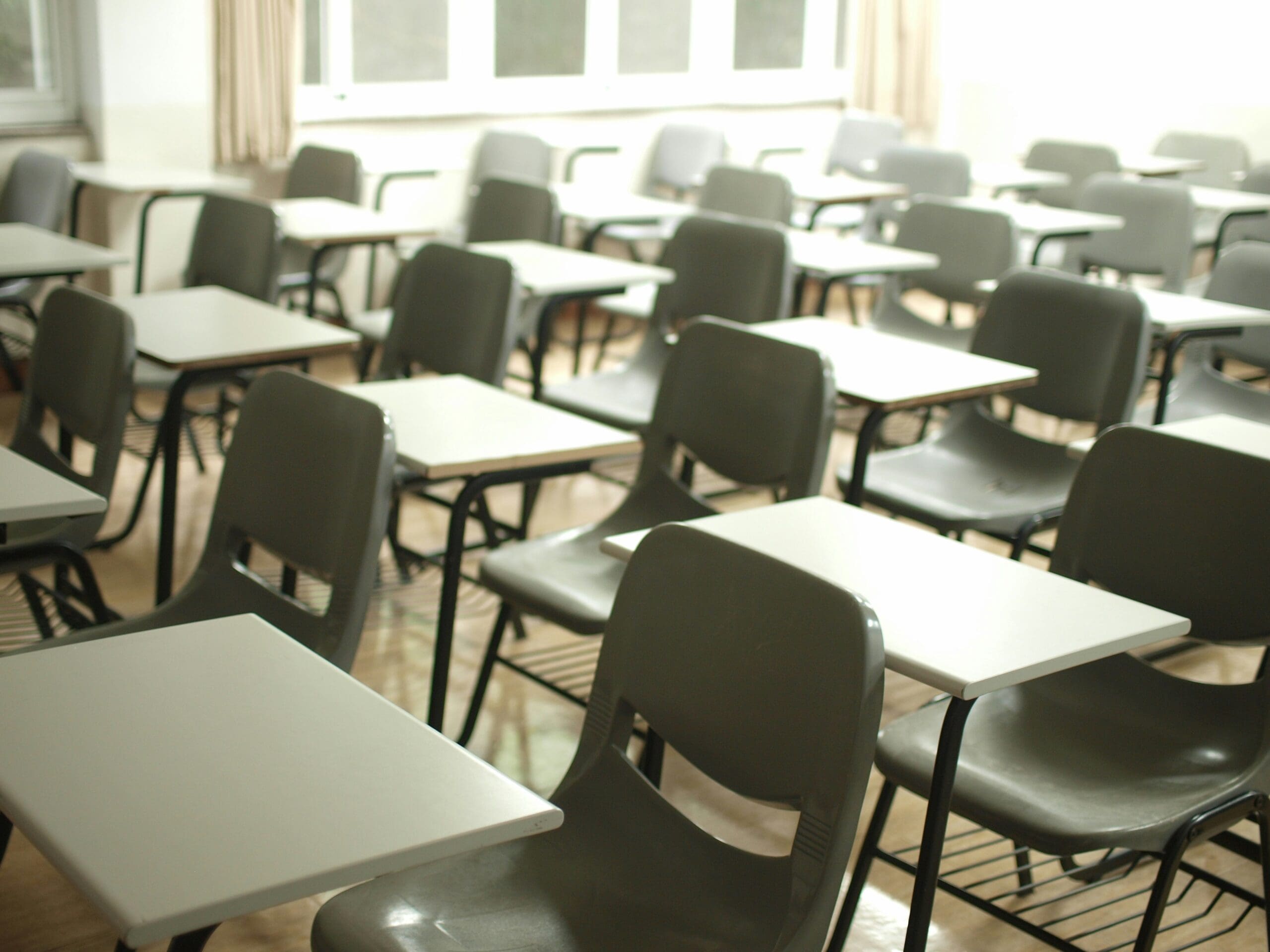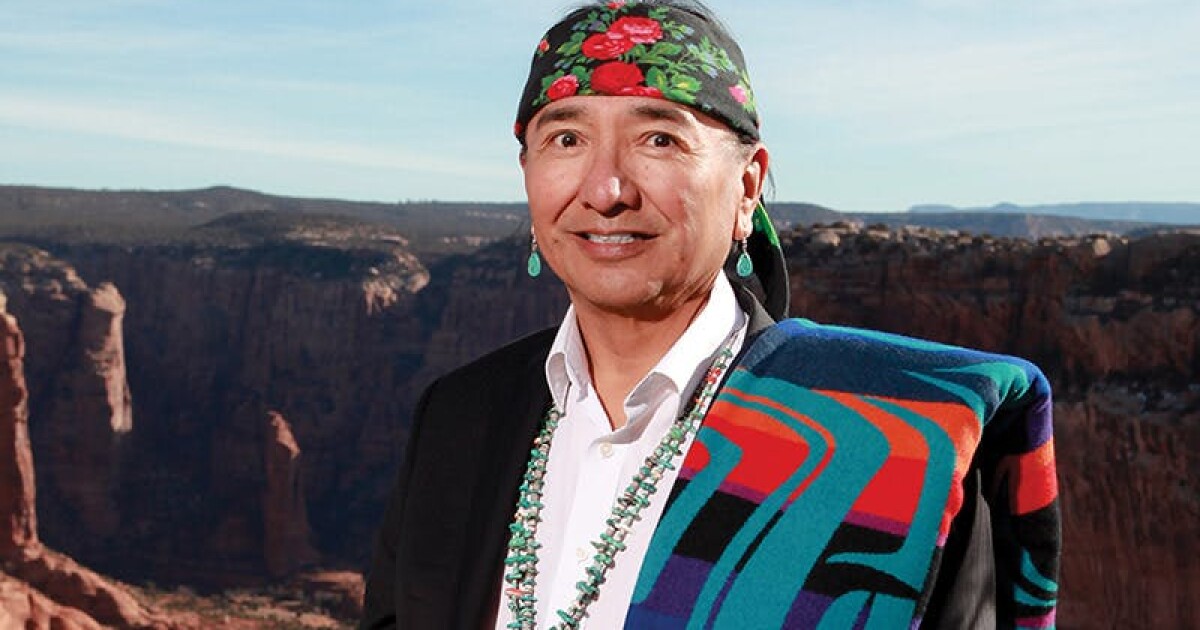First Republican Debate for Michigan Governor Sparks Discussions and Differing Opinions
The race for Michigan’s next governor is heating up as Republican candidates gathered near Grand Rapids for their initial debate. This forum served as a platform for the candidates to differentiate their policies and appeal to voters, even as they largely agreed on several issues.
Conservative activist Karla Wagner emphasized her commitment to abolishing property taxes, highlighting its impact on homeowners. “It is your property tax that needs to be eliminated because that is the tax that will still your house if you can’t afford to pay it,” Wagner asserted.
Debates over the state income tax stirred some contention among the candidates. Scott Cox claimed he was the pioneer in proposing the end of this tax, describing it as a “tax on work.” However, trucker Anthony Hudson refuted this, stating that, “Ending the state income tax has been on my platform, on my website, since December of last year.”
The event, attended by over 150 people in a Kent County barn, evoked cheers and occasional groans from the audience. Among them was college student Nick Slager, who was impressed by Hudson’s distinct approach, noting, “It was the first time I ever heard of Anthony Hudson and he made one of the bigger impressions on me of just being outspoken, being a little different to other candidates.” Slager also found appeal in former House Speaker Tom Leonard, who prioritized education and accountability in his campaign.
Leonard emphasized his commitment to transparency and accountability by stating, “We are the one candidate, we are the one campaign that’s put it in writing so that when I’m elected, all of you will be able to hold it up to me at a press scrum and say, ‘Are you getting to work. Are you accomplishing what you say you were going to accomplish?’”
Bree Moeggenberg, a Michigan Republican Party State Committee member, appreciated the candidates’ engagement but remained neutral. She valued candidates who listen to what Michigan needs, saying, “What I think is most valuable in a candidate is not them telling us what they want to do but them letting us know that they want to hear what is needed from the state of Michigan and what will help grow the state of Michigan.”
While six candidates participated, Congressman John James, a frontrunner, was absent. His campaign spokesperson, Hannah Osantowske, explained, “James is the favorite to become Michigan’s next governor. John will consider a primary debate once the field is set and will be speaking directly to Michiganders in the meantime.”
Jim Runestad, Michigan Republican Party Chair, expressed his hope for James’s future participation, stating, “I think that it hones your ability to message. So, I think the debates are a good thing and hopefully he’ll want to participate at some point.”
Other candidates, such as Senate Minority Leader Aric Nesbitt, were vocal in their criticisms of both James and the Democratic Party. Nesbitt declared, “I’m going to be that Republican candidate that actually challenges the status quo, take the fight to the Democrats, and win next year so that people can make it in Michigan.”
Pastor Ralph Rebandt is also in the race, focusing on tax cuts, deregulation, and reducing the size of the government.
The next debate will take place in Macomb County, with another following in Grand Traverse County. The primary election is set for August 4, while the general election will occur on November 3.
—
Read More Michigan News










